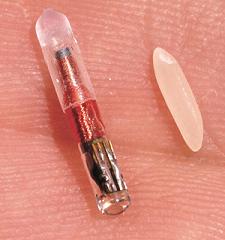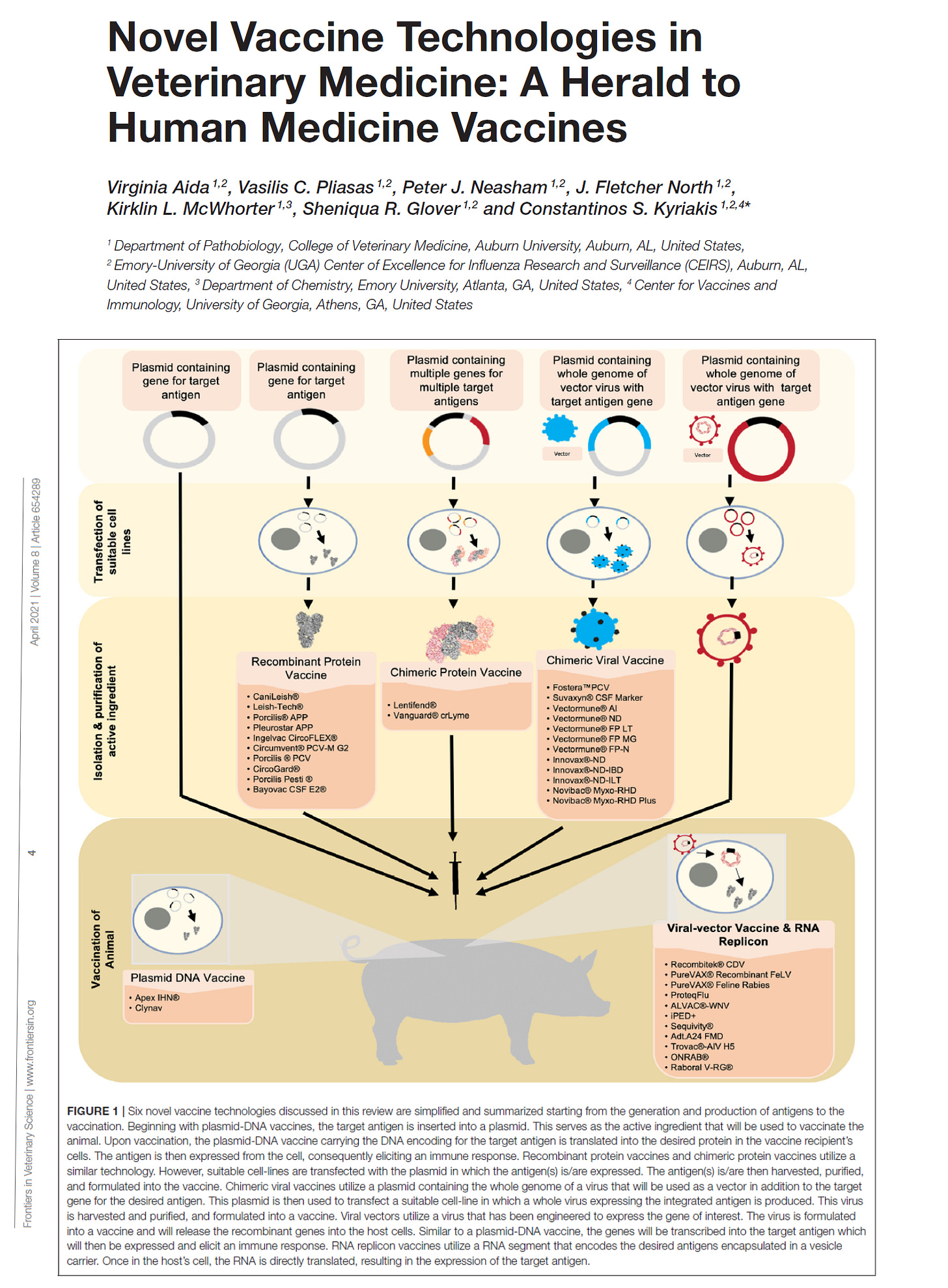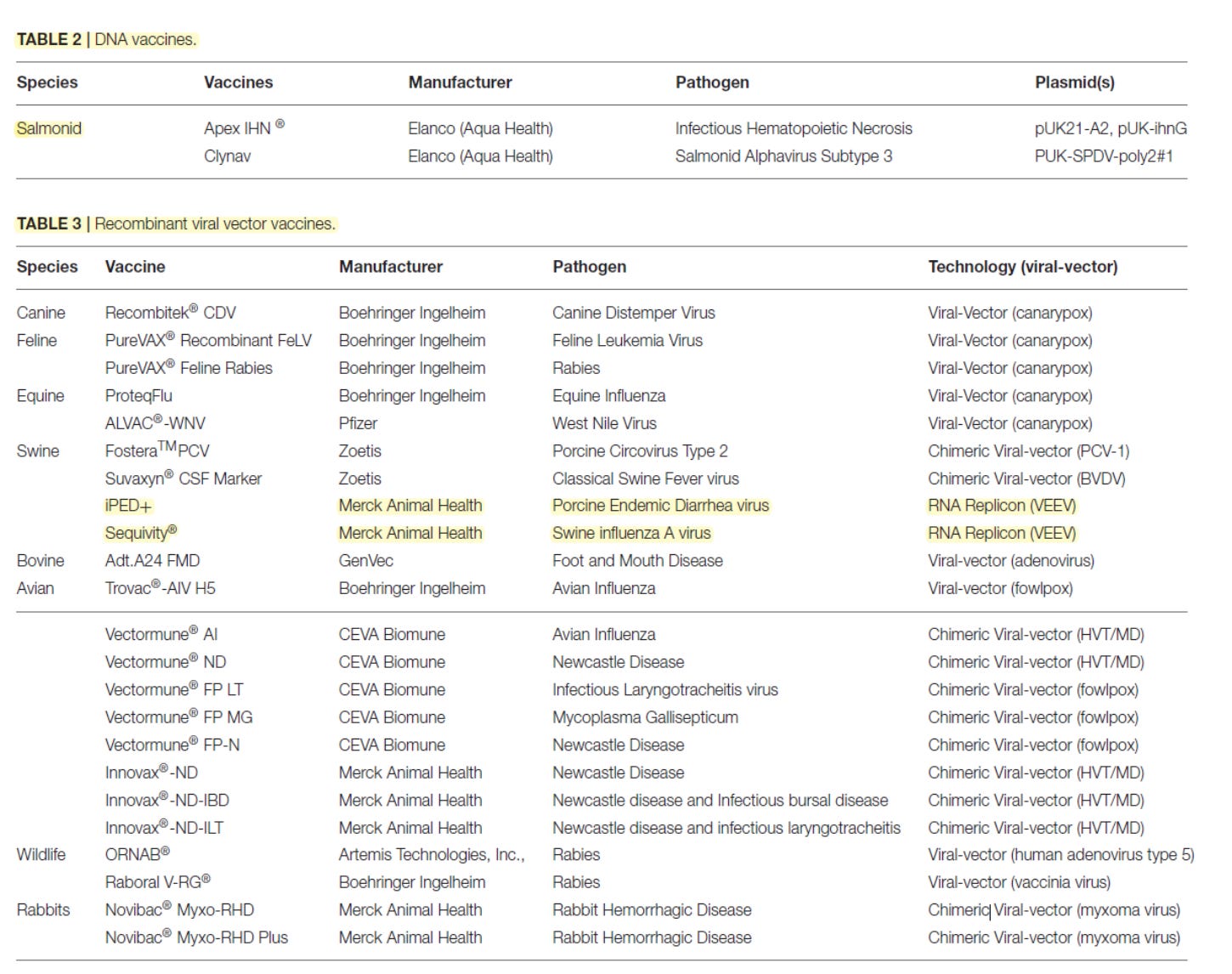Novel Vaccine Technologies in Veterinary Medicine: A Herald to Human Medicine Vaccines
Explosion of Genetic Vaccines in Animals Gets Human Attention

All Global Research articles can be read in 51 languages by activating the Translate Website button below the author’s name.
To receive Global Research’s Daily Newsletter (selected articles), click here.
Click the share button above to email/forward this article to your friends and colleagues. Follow us on Instagram and Twitter and subscribe to our Telegram Channel. Feel free to repost and share widely Global Research articles.
***
The mRNA and adenoviral DNA COVID-19 vaccine debacle in humans has set populations on edge, distrustful of poorly conceived genetic technology. Meanwhile the field has advanced considerably in veterinary medicine. While these shots may protect animals from pathogens over the short term, what are the implications for our food supply? Any of the genetic material transmissible to humans through consumption? Raw or cooked? These and other questions are coming up as more information is being brought forward.
Aida and colleagues have graphically summarized the genetic technologies in use as of 2021 in veterinary medicine. In the consumer meat category at present, only swine are of concern given the use of plasmid DNA, replication incompetent viral vector, and RNA replicon products. Do these technologies cause noninfectious diseases in the animals?
Can any of the genetic material survive denaturing during curing and cooking? How about pork intestines harvested for the production of heparin widely used in human medicine? It is conceivable that genetic incorporation of foreign RNA or DNA into humans and production of antigens for example, porcine endemic diarrhea or influenza A, could have untoward effects including autoimmunity similar to that with the COVID-19 vaccines?

Aida V, Pliasas VC, Neasham PJ, North JF, McWhorter KL, Glover SR, Kyriakis CS. Novel Vaccine Technologies in Veterinary Medicine: A Herald to Human Medicine Vaccines. Front Vet Sci. 2021 Apr 15;8:654289. doi: 10.3389/fvets.2021.654289. PMID: 33937377; PMCID: PMC8083957.

Now is a good time for veterinary and human medicine including the FDA and USDA, to come together and review the published studies of these new products on genetic transmissibility to humans and its potential implications. The Aida paper does not even mention the possibility of collateral impact to humans. One can see that developers, sponsors, and authors are blinded with infatuation for molecular biology and have lost sight of biological product safety in the food supply.
If you find “Courageous Discourse” enjoyable and useful to your endeavors, please subscribe as a paying or founder member to support our efforts in helping you engage in these discussions with family, friends, and your extended circles.
*
Note to readers: Please click the share button above. Follow us on Instagram and Twitter and subscribe to our Telegram Channel. Feel free to repost and share widely Global Research articles.
Source

